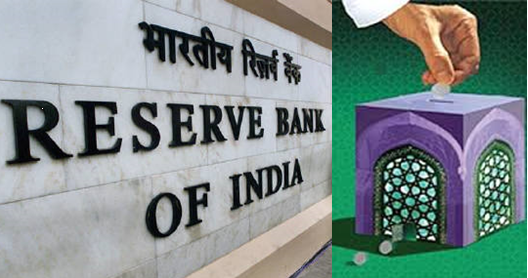In the wake of changing dynamics and fast changing scenarios where black money hoarders and tax evaders are having a nightmare, the RBI has come up with another googly which has stumped many a few. Post demonetization on 8th Nov, 2016 not many would have anticipated the RBI’s proposal for another dynamic shift in the financial structure governing the Indian masses.
The Reserve Bank of India (RBI) on 20th November, 2016 sought to bring in reforms to bring in the 200 odd million Indian muslims into the fold of the Banking–finance sector thereby proposing the possibility of opening “Islamic Banking” in conventional banks for gradual step by step introduction of Sharia-compliant or interest-free banking in India.
What is Islamic Banking?
Islamic banking refers to a system of banking that is consistent with the principles of the Sharia Law and its practical application through the development of Islamic economics. Islamic banking has the same purpose as conventional banking except that it operates in accordance with the rules of Sharia. The principle source of the Shari’ah is The Qur’an followed by the recorded sayings and actions of Prophet Muhammad (The Hadith).
In a nutshell, it is a finance system based on the principles of not charging interest(riba), which is prohibited under Sharia.
In the practical sense, any of the modern techniques of Islamic finance, in practice, are not strictly Sharia compliant and are on the contrary very similar to conventional banking. Some may call this a “legal hypocrisy” while others claim it is a violation of the shariat.
RBI’s stand:
The RBI in its letter to the finance ministry openly laid down its stance for the setting up of Islamic Banking in India by stating that “In our considered opinion, given the complexities of Islamic finance and various regulatory and supervisory challenges involved in the matter and also due to the fact that Indian banks have no experience in this field, Islamic banking may be introduced in India in a gradual manner.”
The RBI proposed to initially introduce a few simple products which were similar in their nature to conventional banking circumventing the concept of Principle + Interest structures with the necessary gazetted notifications by the government. Through the letter it conveyed to the Finance Ministry, it stated that “Introduction of full-fledged Islamic banking with profit-loss sharing complex products may be considered at a later stage on the basis of experience gained in course of time,”
Although it reiterated that because of its magnanimous nature and strict compliance with Sharia, the same cannot be mixed with the other funds/fields; with having Islamic Banking to be conducted in isolation under a separate window.
“In case it is decided to introduce Islamic banking product in India as suggested, RBI would require to undertake further work to put in place the operational and regulatory framework to facilitate introduction of such products by banks in India,” the letter said.
Not many understand the concept, but with the PM’s continuous push for inclusion of all the citizens from all walks of life irrespective of their race, religion or economic status this move for the introduction of Islamic Banking could turn out to be a master-stroke for the BJP Government which has been lauded by the common masses for its staunch decisions and stance against Black Money hoarders. This move could prompt the staunch Muslim citizens to use the banking services more which would in turn lead to increased cash flow deposits, helping the Indian economy in return.
Anachronistic, is it?
In this shrinking digital world, where transactions happen based on principles of Economics and not on the basis of rules laid down by a particular religion introduction of such practices would only complicate things further. And at a time when the government is talking about introducing the UCC, of One Nation One law, the introduction of this concept will only take us back in time. More so, the mechanism of how the RBI would implement this system is also intriguing to see. With this step, the RBI and the government would indirectly play into the hands of the mullahs/religious heads who hold the right and the power to interpret (ijtihad) the Quran and the self granted permission to twist the rules/laws of sharia based on their convenience, and any person (Muslim or non-Muslim who opposes them is termed a kafir).
Taking advantage of a legal terminology:
But on the flip side with the ever growing international influence of Middle east Islamic countries, it is only in India’s gain to introduce a transaction system which adheres to their strict religious belief, thereby strengthening business relations between India and the Middle Eastern countries.
According to the International Monetary Fund (IMF), the total computed assets of/under Islamic banking worldwide are estimated to exceed US$250 billion, and are growing at an estimated 15% a year. This makes the Islamic market very lucrative for banks to enter into, which in return is good for the country’s economic progress.
Conclusion:
It would be interesting to see how a separate finance structure gets incorporated in a conventional banking setup, without disturbing the latter. In addition to the same, it is hereby assumed that the RBI has thought this through, and has finalized a draft policy to include a few religious heads(who if not included can go to the extent of declaring a fatwa on any Islamic banking scheme that is declared by a non Muslim/kafir), and have ensured that these Islamic banking organizations are not given a free autonomous hand which in the future has the propensity to divide/break-open the country on economic religious grounds.
Finally, with the prevalent socio-political scenarios, wherein political organizations hold the capability and capacity of giving anything and everything a communal angle, based on the religion of their target vote bank the successful implementation of the same seems questionable to say the least.
